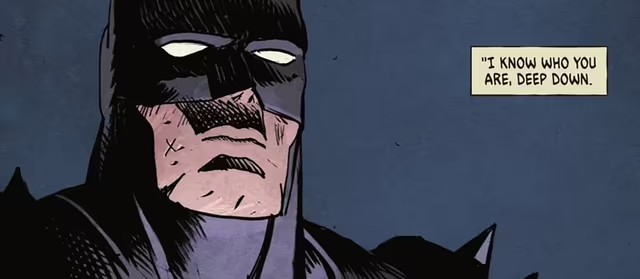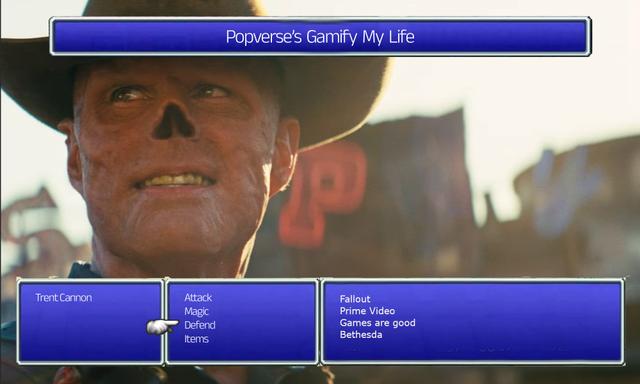If you click on a link and make a purchase we may receive a small commission. Read our editorial policy.
Netflix's Squid Game: The Challenge is the dystopian reality thrill that you've worried about
It's very exciting to watch the reality show version of Squid Game (That's maybe not a good thing, though)

When I hit play on the first episode of Squid Game: The Challenge — the much-anticipated, much-discussed, controversial reality contest based on the hit South Korean drama — I was pretty sure I knew what to expect: something that missed the point of the dystopian original and, as a result, became even more dystopian. An hour later, such thoughts weren’t anywhere near my head; instead, I just wanted to see what happened next just as eagerly as had been the case with the fictional source material.
All of which was to say: For better or worse, The Challenge is, in many ways, an entirely successful translation of Squid Game for a certain type of viewer, or at least a viewer looking for a certain type of thrill from the show. I’m just somewhat unsure of whether it is better or worse.
The initial episodes of The Challenge purposefully invite comparisons to the original series, with the primary challenges in each of the first two episodes recreating iconic moments from Squid Game, and even the episode titles repeating titles from the original: “Red Light, Green Light,” and “The Man with the Umbrella.” The first of those challenges is reproduced pretty faithfully from the original — there’s not that many changes you can make in a five-minute dash, after all, although (of course) those who fail the test aren’t killed; instead, ink squibs explode on their chests and they play dead, instead. The second challenge, ppopgi, is skewed to allow for the maximum drama in true reality show fashion, which means “somewhat repetitious, but the tension is still real, despite itself.”
The placement of these two tasks, and the fact that the second is altered slightly, is purposeful: it draws the viewers and players in through familiarity, setting up the gag that the third task is entirely new, ruining the plans of those players who believed themselves to be strategic geniuses and providing some surprisingly satisfying closure in the process, even if it throws the show’s larger attempts at narrative into some disarray.
This is, in many ways, the success and failure of The Challenge as a Squid Game spin-off: by being a reality show — where people can and do get eliminated at any point, for any number of reasons including (but not limited to) sheer bad luck — it maintains that sense of “you never know what is going to happen” that the original show had, albeit with lower stakes. But, at the same time, the fact that anyone can be eliminated at any point makes it difficult for the show to create any long-term narrative stakes, because as soon as a storyline seems established, the contestant disappears because they couldn’t break candy properly or whatever.
This lack of ability to sustain a throughline in terms of either “plot” or “character” is what will break the show for those who simply wanted to see Squid Game, but “real.” What The Challenge is, ultimately, is a compelling reality game show that uses the format of the original drama for cheap thrills — and, as cheap as they might be (and they are, don’t get me wrong; the show is very clear in how much it trades on the audience’s knowledge of, and affection for, the original Squid Game for its own benefit), they’re very thrilling for the right audience. (I am, for my sins, part of that audience; it’s not necessarily something I’m proud of.)
Where the show falters most is when it tries to connect with the darkness at the heart of Squid Game as a concept. The fictional series is not subtle in stating that Squid Game is what happens when people are driven to desperation by poverty, and that the audience of the game is profiting from said poverty, and from pushing people to their limits as a result of their need. Squid Game: The Challenge makes the viewer into the audience, and then… intentionally or otherwise… leans into the existential discomfort of that fact by opening with a contestant talking about how they want to use the $4.56 million prize fund to pay off their car and their mortgage, two things that are unimaginable to them normally.
That contestant is then eliminated from the contest in the very first task.
Squid Game: The Challenge really is, ultimately, more dystopian than the original not only because it’s real — but because, by its very nature, it’s a show that asks you to become the bad guy by watching and enjoying it. If you tune in, you’ll likely find yourself wanting to see what happens next just as much as I did, but still: best be warned.
Squid Game: The Challenge is streaming on Netflix now.
Want to know what's coming up next in pop culture? Check out Popverse's guides to:
Follow Popverse for upcoming event coverage and news
Find out how we conduct our review by reading our review policy
Let Popverse be your tour guide through the wilderness of pop culture
Sign in and let us help you find your new favorite thing.
















Comments
Want to join the discussion? Please activate your account first.
Visit Reedpop ID if you need to resend the confirmation email.